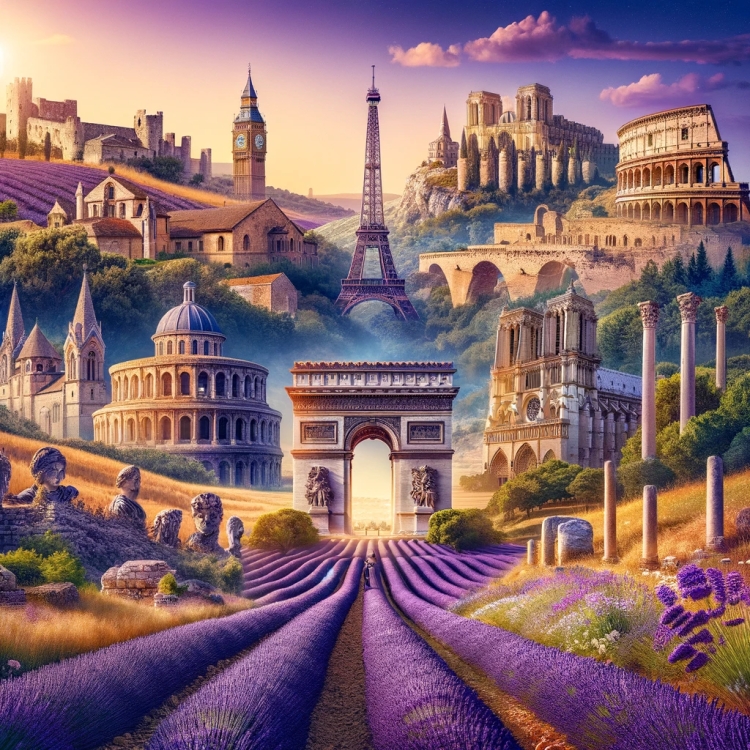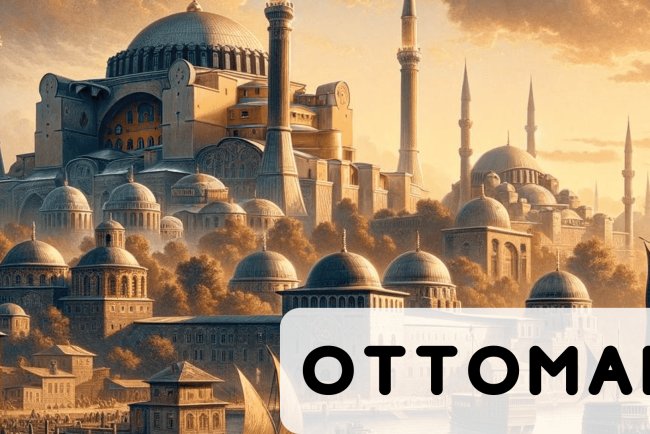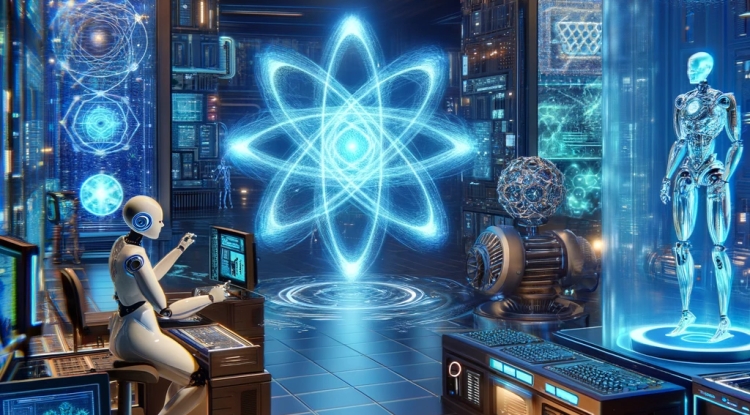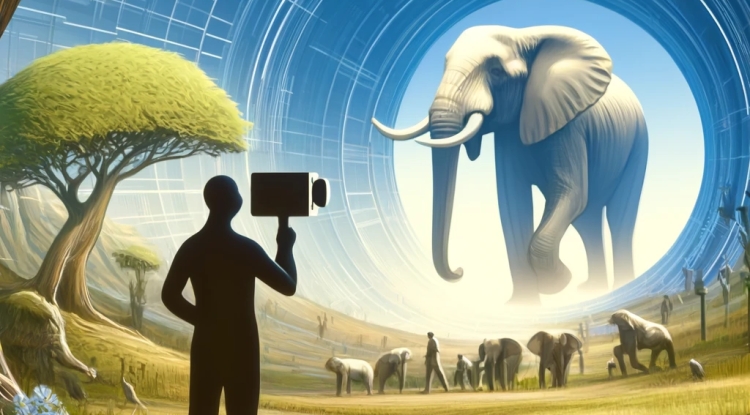From Lavender Fields to Empires: The Evolution of France
Explore the journey of France from its scenic Provence lavender fields to the significant milestones that defined its history. This blog uncovers the essence of France, from the ancient Gauls to the formation of the modern state. Discover the impact of the Roman Empire, the rise and fall of the Merovingian and Carolingian dynasties, and the transformative era of the French Revolution. Dive into the narratives of key figures like Clovis I, Charlemagne, and Napoleon Bonaparte, whose leadership shaped France's culture, politics, and identity.

Provence Lavender Fields
Provence is famous worldwide for its lavender fields, which bloom in summer, covering the region in a purple hue and offering a breathtaking landscape. Lavender thrives in the region's climate and soil, holding a significant place in Provence's culture and economy.
From Ancient Times to the Middle Ages
The foundations of France date back to centuries BCE, with the Gauls being among the initial settlers in the region. The name "France" derives from the Latin "terra Francorum" (the land of the Franks). During this period, the region known as Gallia under Roman rule was conquered by the Romans, initiating a process of Romanization that shaped the region's language, culture, and legal system.
The Frankish Kingdom and Carolingian Empire
Following the fall of the Roman Empire in the 5th century, the Franks began to dominate the region. The succession of the Merovingian Dynasty by the Carolingian Dynasty, especially during Charlemagne's reign, saw the establishment of a vast empire in Europe. In the year 800, Charlemagne's coronation as the Roman Emperor made the region a significant Christian center. However, it is important to note that religious terms are avoided in this context.
From the Middle Ages to the Renaissance
After the fragmentation of the Carolingian Empire, French territories were divided into various feudal kingdoms and lordships. The crowning of Hugh Capet as the King of France in 987 marked the beginning of the Capetian Dynasty and laid the foundations for a kingdom that would approximate modern France's borders. This period was critical for establishing territorial integrity and strengthening central authority.
The Age of Enlightenment and the French Revolution
The 18th century was a period of significant changes for France. The ideas of the Enlightenment questioned the absolute authority of the monarchy and social injustices. The French Revolution, which erupted in 1789, overthrew the monarchy to establish a republic, laying the foundations for the modern French state. This period marked a transformation emphasizing values such as equality, freedom, and brotherhood.
The 19th and 20th Centuries
Following the French Revolution, France underwent a series of political transformations. The rise of Napoleon Bonaparte and the subsequent restoration periods were significant events of the 19th century. In the 20th century, two world wars had a profound impact on France's domestic and foreign policy. The establishment of the Fifth Republic in 1958 shaped the modern French state structure.
The process of France's formation is a narrative shaped by rich historical layers and contributions from various periods. This story illustrates how the modern, democratic, and influential nation-state was built.
Clovis I and the Merovingian Dynasty
At the end of the 5th century, following the fall of the Roman Empire, various Gallic tribes were engaged in power struggles. Clovis I emerged as a prominent figure, uniting the Frankish tribes and becoming king in 481, laying the foundations for modern France. His conversion to Christianity played a vital role in the expansion and transformation of the Frankish Kingdom. The Merovingian Dynasty is regarded as the first ruling family of the Franks and, by extension, France.
Charlemagne and the Carolingian Empire
In the 8th century, Charlemagne of the Carolingian Dynasty established a significant empire that left deep marks on European history. Crowned Emperor in Rome in 800, Charlemagne promoted the spread of Christianity and led a revival in education and culture across Europe. His reign reshaped the political map of Europe and laid the groundwork for the modern European states.
Hugh Capet and the Capetian Dynasty
The foundation of the Capetian Dynasty began with Hugh Capet's ascension to the French throne in 987. This dynasty marked the beginning of a line that would govern France for approximately 1000 years. Hugh Capet's reign represented a crucial step from a feudal period towards a centralized kingdom. During his time, the territorial integrity of France was established, and central authority was strengthened.
The French Revolution and Modern France
The outbreak of the French Revolution in 1789 overthrew the monarchy and established a republic, laying the foundations for the modern French state. The revolution advocated ideals of equality, freedom, and fraternity and was a pivotal moment in the spread of democratic values across Europe. Although many leaders emerged during this period, it's essential to recognize the revolution as a collective effort involving the contributions of many.
Napoleon Bonaparte
Rising from the chaos of the French Revolution, Napoleon Bonaparte became a significant figure in French and European history. Proclaiming himself Emperor of France in 1804, he implemented reforms in law, education, and administration, significantly shaping the modern French state. Napoleon's wars profoundly affected the political landscape of Europe and played a crucial role in the formation of national identities.
These figures and dynasties, each leaving their mark on France's history in different ways, played key roles in the development of today's rich cultural and political heritage of France. Their stories help us understand how France came together and evolved into the modern nation it is today.
What's Your Reaction?



















